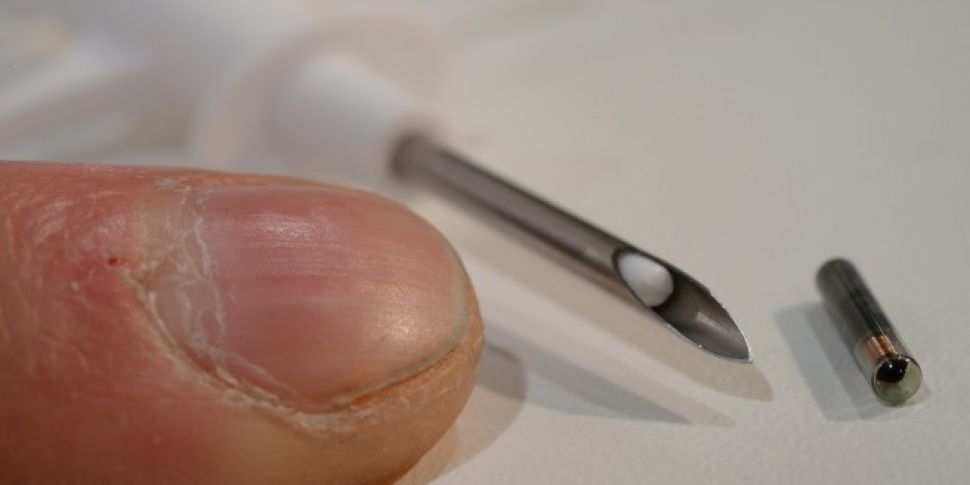Employees at a digital startup hub in Stockholm, Sweden, are volunteering to get implanted with a microchip, allowing them to easily open doors, operate printers and buy food with the wave of a hand.
The invasive alternative to swipe and credit cards is syringed into the spot between the person's thumb and index finger.
Roughly 150 people have signed up to essentially become a "cyborg" since January 2015 – half of them being full-time employees and the other half curious visitors – with the scheme proving so popular that 'chip and beer' or 'chip and wine' parties are now occasionally thrown when someone gets the implant.
An outside firm offers the procedure for approximately $150.
The Epicenter hub houses over 100 startups and innovation labs in the Swedish capital, accommodating a workforce of roughly 2,000.
Speaking in an Associated Press report, co-founder and CEO Patrick Mesterson said:
"The biggest benefit I think is convenience. It basically replaces a lot of things you have, other communication devices, whether it be credit cards or keys."
Mesterson went on to admit that he had doubts himself about being microchipped in the beginning.
"Of course, putting things into your body is quite a big step to do and it was even for me at first.
"But then on the other hand, I mean, people have been implanting things into their body, like pacemakers and stuff to control your heart. That's a way, way more serious thing than having a small chip that can actually communicate with devices."

Epicenter CEO Patrick Mesterton. twitter.com
Fredric Kaijser, chief experience officer at Epicenter, told AP that concerns over privacy and security didn't factor into his thinking.
"People ask me: 'Are you chipped?' and I say: 'Yes, why not?'
"And they all get excited about privacy issues and what that means and so forth. And for me it's just a matter of I like to try new things and just see it as more of an enabler and what that would bring into the future."
Getting "excited about privacy issues" was Ben Libberton. The Karolinska Institute microbiologist commented in the same report:
"The data that you could possibly get from a chip that is embedded in your body is a lot different from the data that you can get from a smartphone.
"Conceptually you could get data about your health, you could get data about your whereabouts, how often you're working, how long you're working, if you're taking toilet breaks and things like that."
In an email to the Washington Post, Mesterton said:
“If a person is worried about being traced, your mobile phone or Internet search history poses a bigger threat than the RFID chip we use ever would do."









